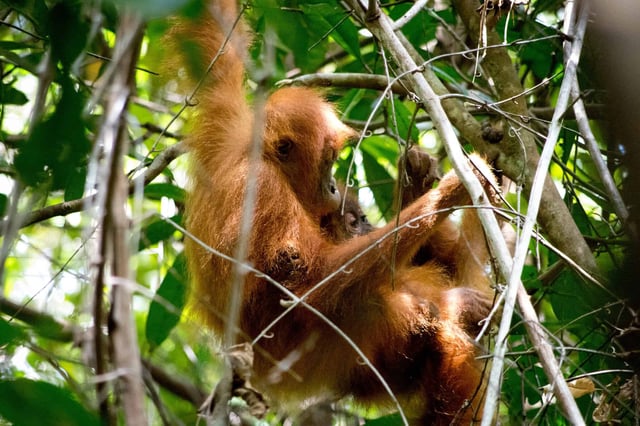Overview
- Researchers analyzed 17 years of field observations on 44 Sumatran orangutans and published the results in Communications Biology.
- Infants begin deliberate peering by about six months and practice day nests between ages one and four before starting complex night nests around age three, typically taking about five years to master.
- Youngsters were far more likely to practice right after peering at a builder, while merely being nearby without watching rarely led to practice.
- As juveniles, learners expand beyond their mothers to observe other community members, copying tree species and materials yet often reverting in adulthood to maternal choices, indicating cultural continuity.
- Night nests are multi-stage platforms high in the canopy with linings, pillows, and roofs, underscoring both the complexity of the socially learned skill and the risk to these traditions if populations and habitats decline.
